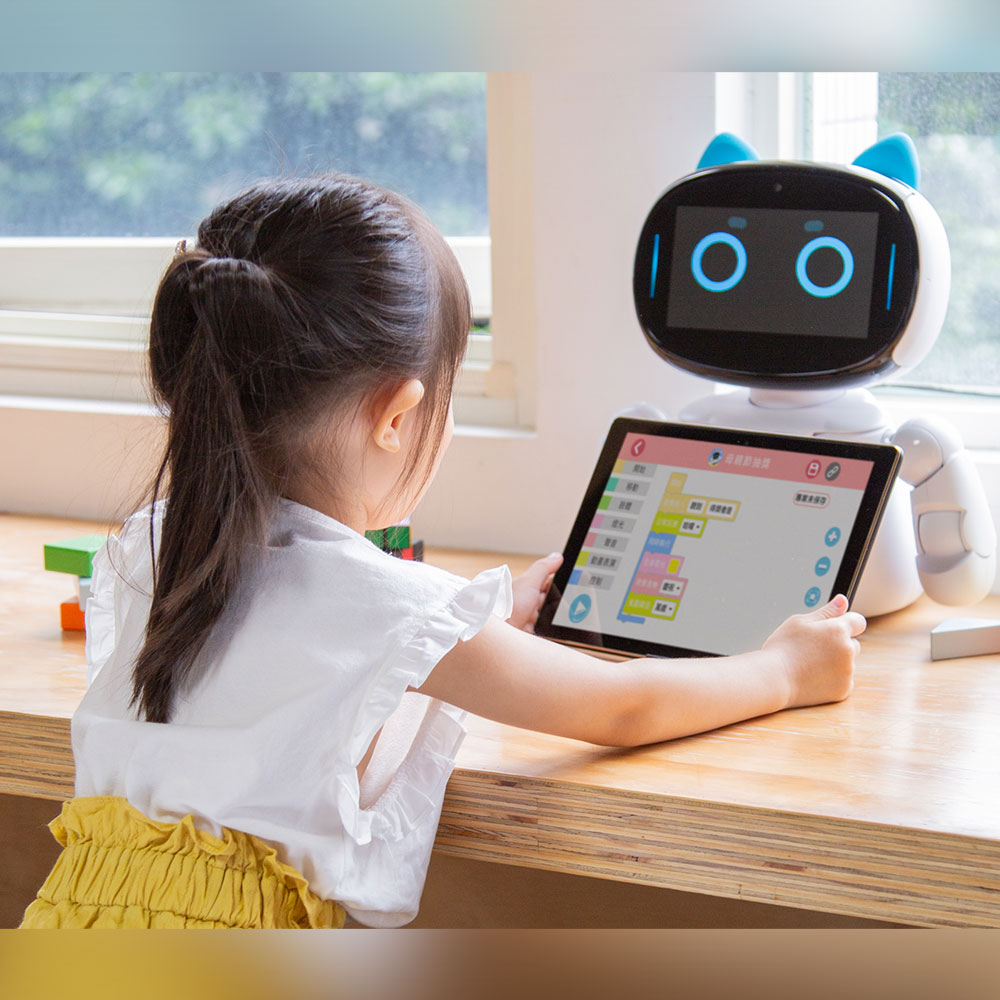
AI for School Students
Artificial Intelligence (AI) is programming computers to learn which leads to smart automation. In this training process, computers learn based on inputs given by the user. Since computers evolve and learn step by step after each iteration, this programming approach is called ‘Machine Learning’ (ML).
Applications of AI
In Automobiles:

AI is being used to build self-driving vehicles. It works with a vehicle’s camera, its radar, cloud services, GPS, and control signals to operate the vehicle.
In Robotics:
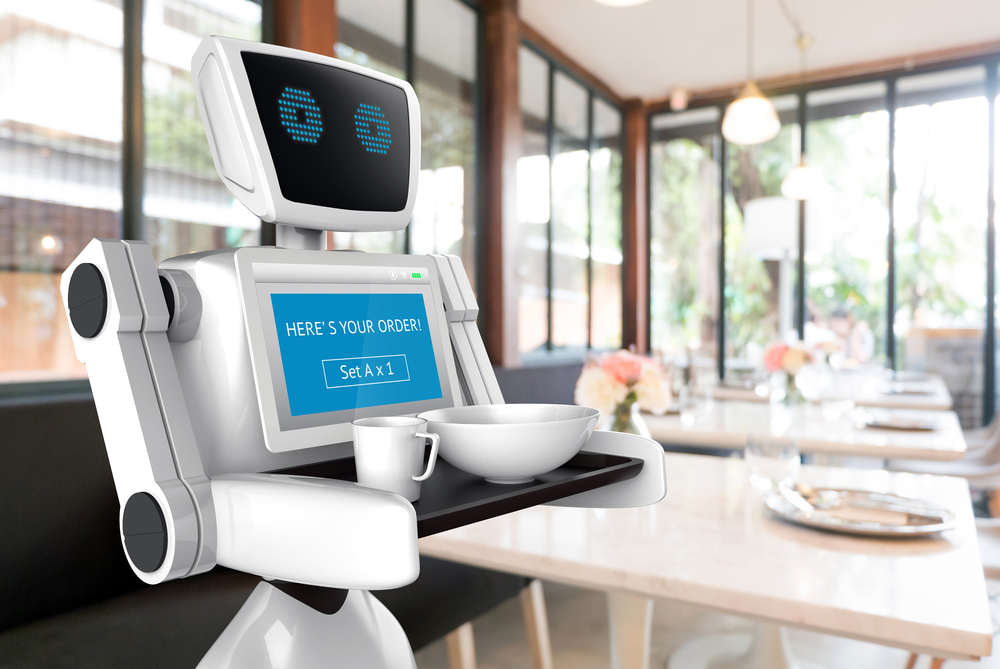
Robots are powered by AI using real-time updates to sense obstacles and pre-plan their journey. They are trained to perform household work and communicate with users.
In Gaming:
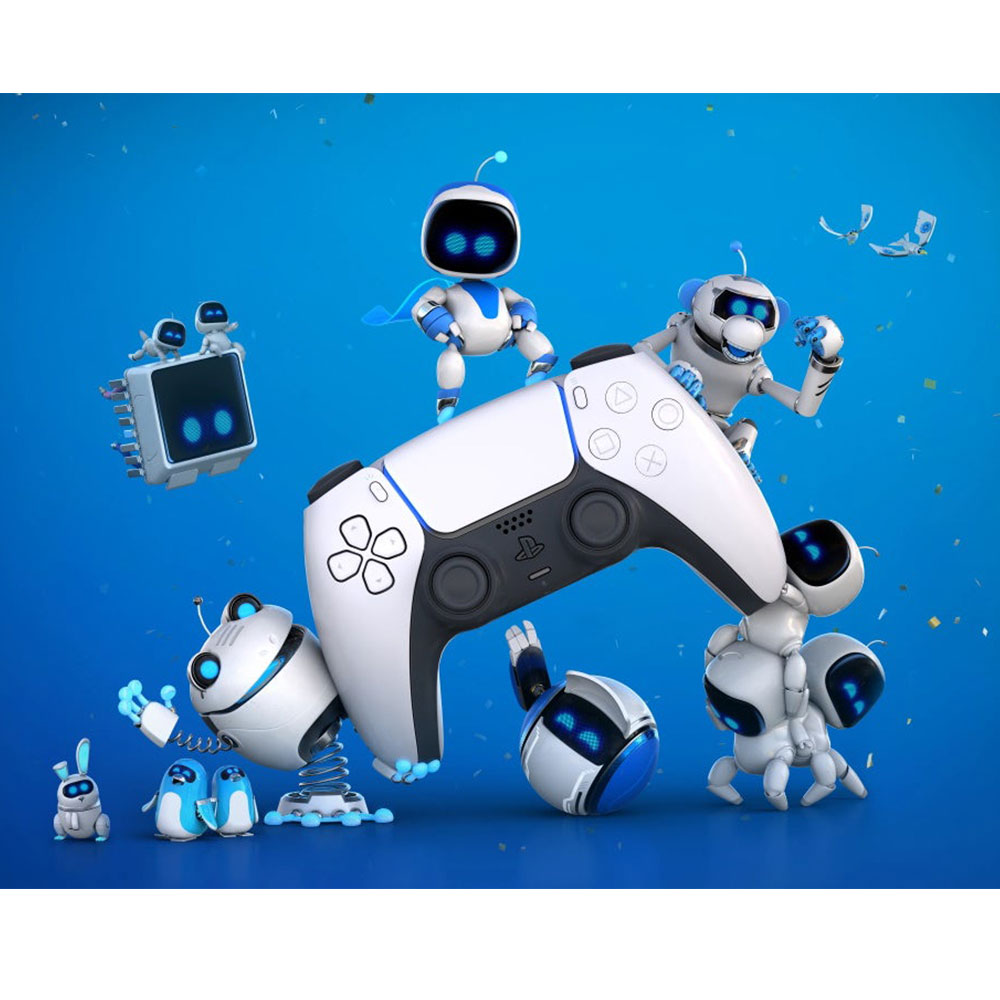
AI is used to predict human behaviour. This improves game design and testing. AI bots can combat with players in multiplayer arcade games and role player games.
In E-commerce:
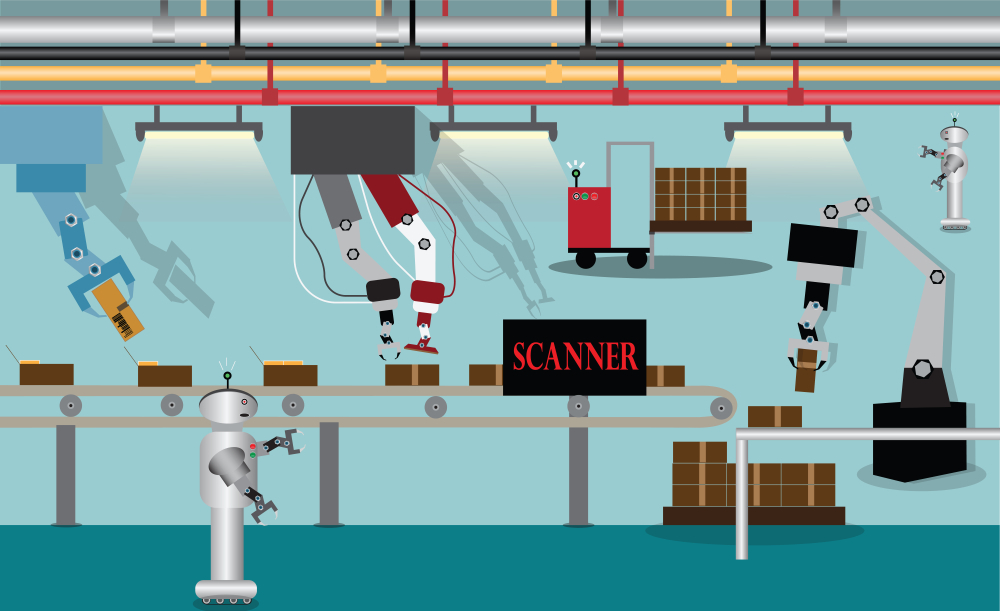
AI technology is used to create recommendation engines through which businesses can better engage with their customers. They can track buying history, wish lists and products viewed. This enables them to recommend products which customers are likely to buy.
Can school students train computers to learn?
The answer is Yes. They can train computers through programming, training processes, and testing. Using data science and AI, they can program robots, games and more.

Here’s how school students can learn about AI with the help of an advanced ICT program
ICT programs that offer advanced tech curriculum introduce school students to the world of AI at an early age. Students learn about AI & ML while understanding their real-world applications.
With project-based learning methodology – students explore and create AI applications for image recognition, build AI systems that play games and more with Cognimates, Python etc. that bring the concepts to life while developing their critical thinking, communication, and creative thinking skills.
Let’s understand this better with the help of an example
Students are given a project where they need to build an AI application to identify animals like cats and dogs. To develop the AI application, students will use the Cognimates platform which has easy-to-understand steps and a simple graphical interface.
Steps:
1. On the Cognimates platform, there will be two options – Train Vision and Train Text. Click on ‘Train Vision’.
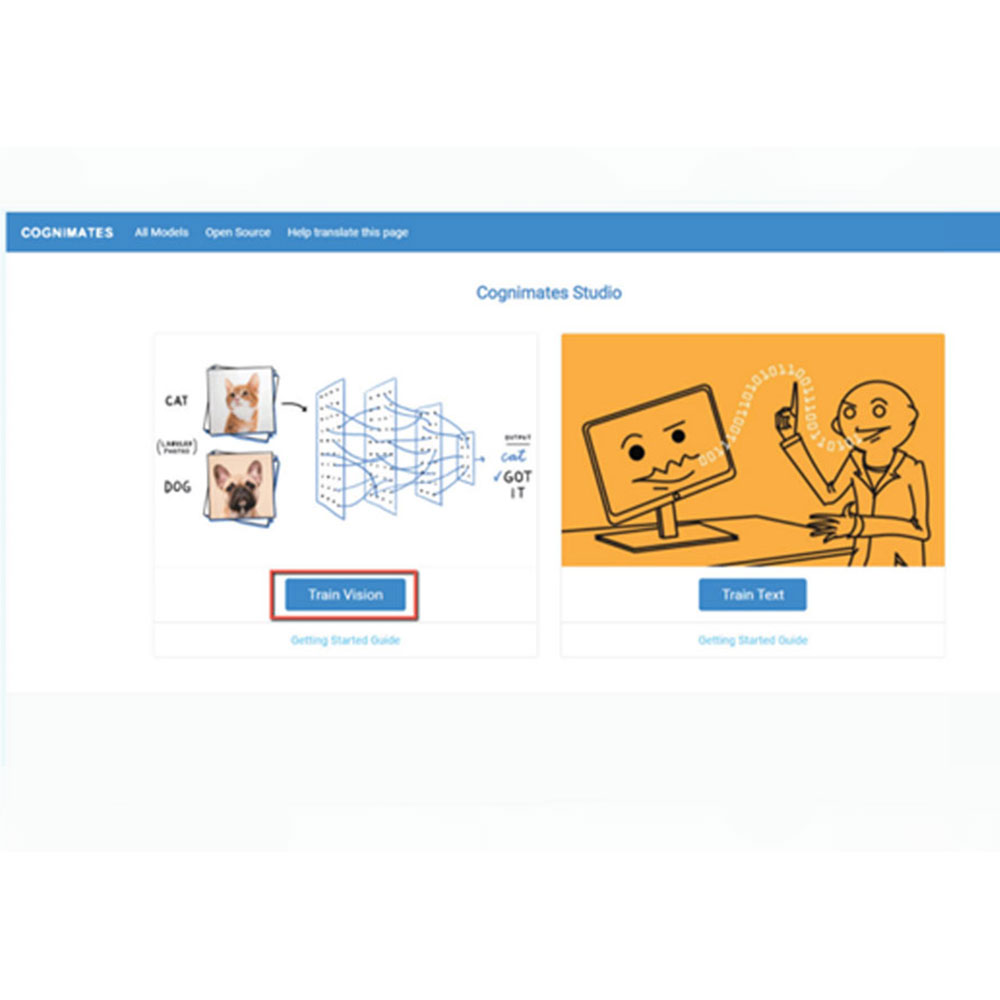
2. Enter the Project Name: ‘Image App’. Create a Clarifai Account to get keys. A Google account is needed to sign up on Clarifai.
3. Click on ‘Create Application’. Next, click on the clipboard and copy the API key. Then, paste the API key in Cognimates AI Engine.
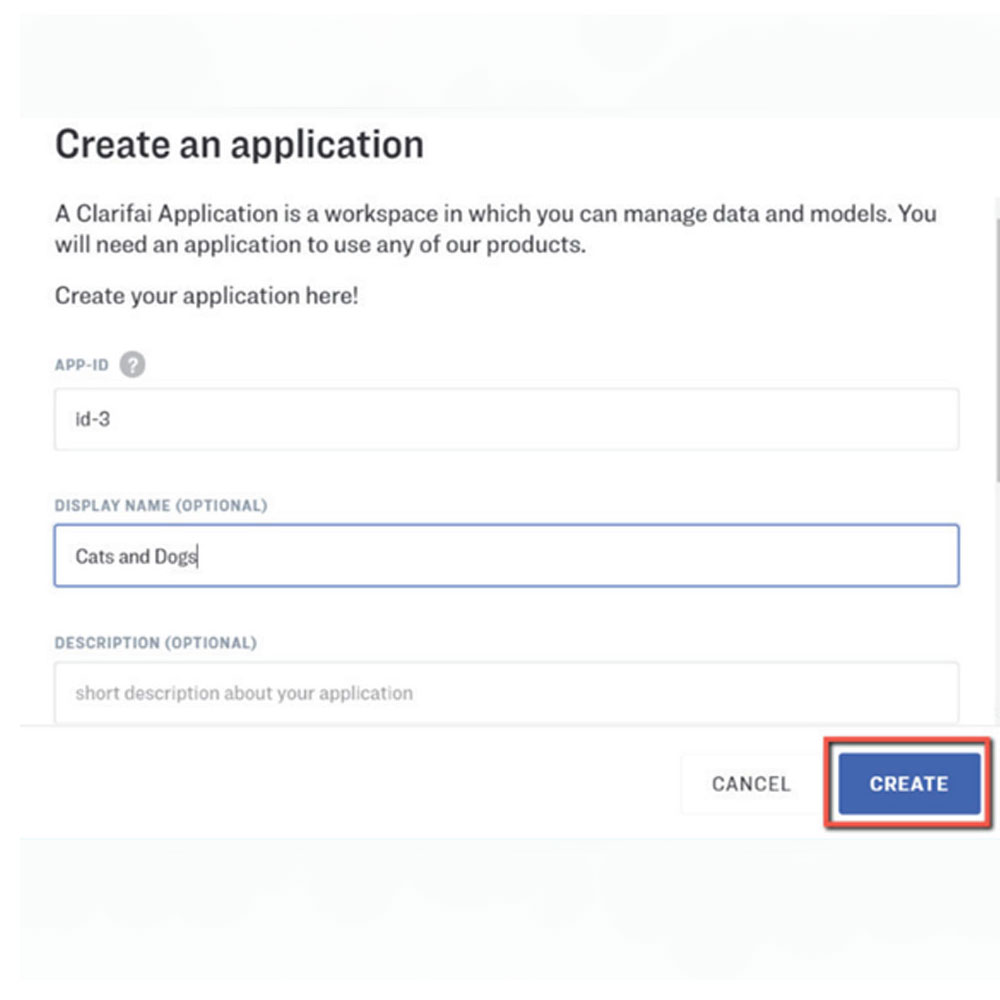
4. Make two categories to sort the images into: Cat, Dog.
5. To train the AI model, at least 10-15 images are needed for each category.
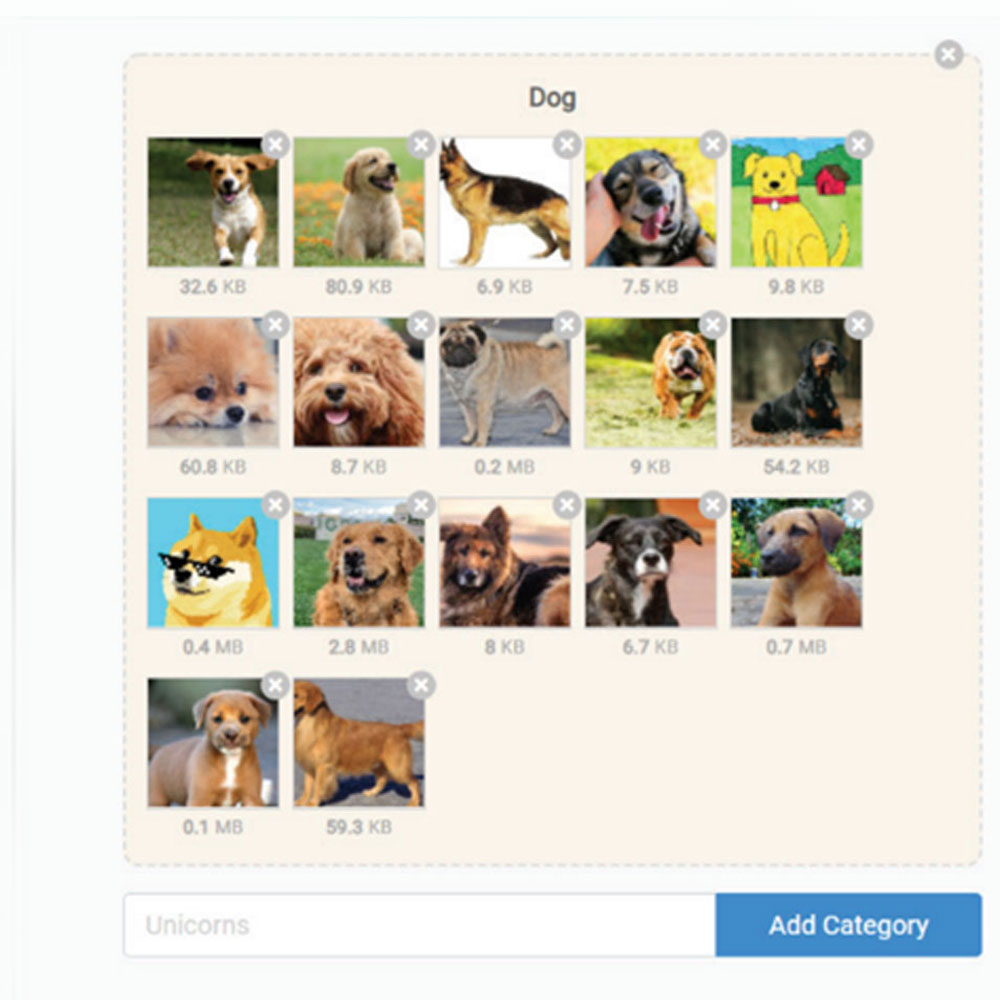
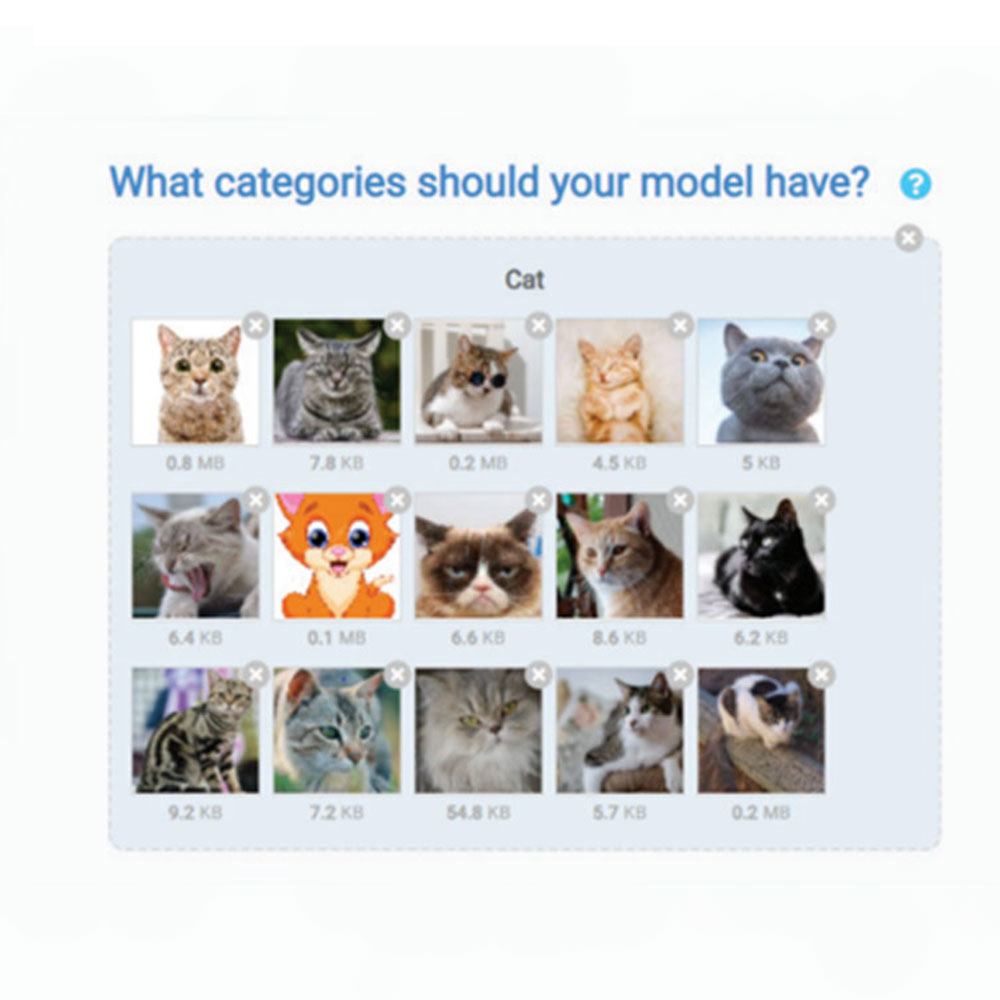
6. Search for the images on the internet and download the images for each category. Then, add the images and click on ‘Train Model’.
7. After the model has been trained, the model status will be displayed on the screen ‘Model is trained and ready’.
8. To test your model, download 3-4 test images which may or may not match with the categories.
9. Upload an image of a Cat and click on ‘Predict’. If the result displayed is Category: Cat, Confidence score: 90% - it means that the Cat category is well trained.
10. Upload an image of a Dog to test your model and click on ‘Predict’. If the result displayed is Category: Dog, Confidence score: 65% - it means that AI has found it to be a close match.
A lower result % means more images need to be added to train the AI model. This includes adding different types of images as well, so that it is more accurate.
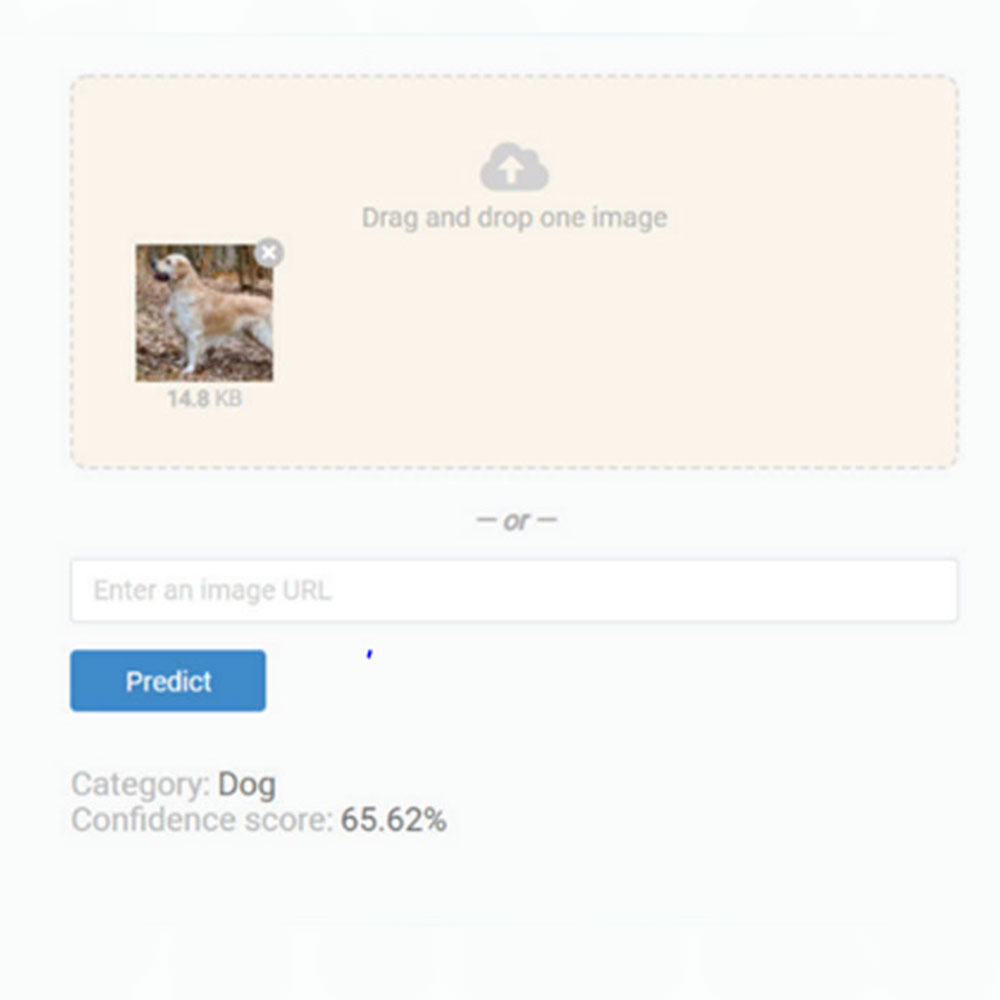
11. Upload an image of a Chair (which falls in neither of the categories). If the result displayed is Category: Dog, Confidence score: 2% - it means that AI is performing better since it has shown a lower percentage of confidence for an unrelated object.
At ICT 360, we provide advanced tech curriculum for schools – grades 1-10 – for AI, AR, VR, Coding, Media Design, App Design, Game Design, Web Design, 3D Printing, Robotics, IoT, Cloud Computing and all futuristic technologies to enable students to become Innovators, Collaborators and Problem-Solvers.
ICT 360 serves as a one stop solution for all ICT requirements of a school. With NEP aligned & STEM accredited ICT curriculum – this unique platform offers Teacher Development Trainings with Certifications, Project PPTs, Lesson Plans, Assignments, Learning Resources, Technical Support, Assessments, Reports, and LMS for students and teachers for synchronous & asynchronous learning to equip them with 21st century skills and prepare them for the tech-driven future.
